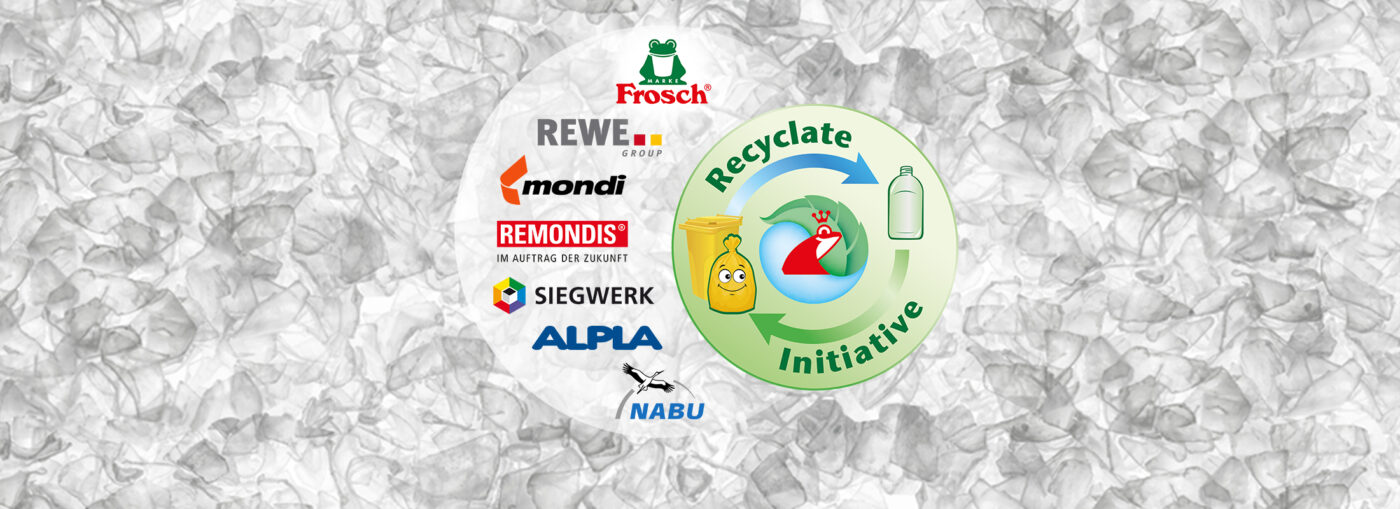

Recyclate Initiative Partners
The Recyclate Initiative works toward greater sustainability in waste management and genuine plastic recycling from the Yellow Bag collection system. It adheres to a closed loop principle in which the production of plastic packaging forgoes the use of crude oil. Instead, plastic from the Yellow Bag is processed into such high quality material that it can serve as the basis of packaging for foodstuffs. With a new type of technology, recycled PET flakes are cleverly sorted and then used as a secondary raw material to produce transparent bottles. This is a true closed-loop system that does without petroleum as the basis for plastic packaging and thereby reduces environmental pollution. The Recyclate Initiative, an innovative partnership involving companies and organizations, has real success here.
Cross-industry supply chain
Another innovation in the Recyclate Initiative is the use of a joint cross-industry supply chain. Participants, including the Green Dot, the packaging company ALPLA Werke Alwin Lehner GmbH Co & KG, the retail concern REWE Group and Unisensor Sensorsysteme of Karlsruhe, work with the trusted Werner & Mertz Frosch brand and NABU, the German nature conservation organization.
Upcycling technology that works
The high-tech company Unisensor has developed an efficient fine-sorting of PET flakes that uses ultra-modern laser technology. The recycled flakes are sorted by laser so that only absolutely transparent flakes remain available for further processing. The highly respected Fraunhofer Institute examined the recovered material and declared it in compliance with the requirements of the United States Food & Drug Administration (FDA) for use with foodstuffs. The processing of used packaging of PET into recyclates has a two-fold environmental advantage over conventional production using petroleum. For one thing, it does not work with fossil fuels but rather with recyclates and so closes the raw material cycle. In addition, the manufacturing process consumes up to two-thirds less energy and saves CO2 in two ways.
Vision of the future
“We consider this type of upcycling to be practiced eco-effectivity,” says Reinhard Schneider. The initiative has ambitious recycling goals for the future too. “We want to fully exploit the potential of one and one-half million tons of plastic waste from the Yellow Bag,” says Schneider. “Furthermore, we intend to promote the use of new technologies. Crude oil is a limited resource and what’s lacking is a vision of an effective material cycle. We want to expand the pilot project of our joint initiative into an idea that establishes itself in the mind of the consumer.”







